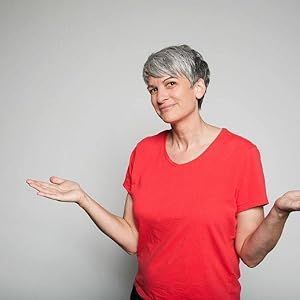
Frederick Earlstein
关于作者
Retired high school biology teacher Frederick Earlstein lives to research. When his only niece was diagnosed with postural orthostatic tachycardia syndrome (POTS) at age 14, Earlstein felt helpless. His answer was to start researching the condition and sharing everything he learned with his sister and her family. That project not only resulted in a book on the subject, but also to the successful management of the girl's condition. Earlstein applied the same approach to his own minor problems with blood pressure, allergies, and degenerative disc disease. "It's all about critical mass," he says. "When the notes on my laptop and those piled up on my actual desktop reach a certain level, I start realizing there's a book in there somewhere." Writing about medical issues in plain English has become Earlstein's second career. After retiring from his career as an educator, he began looking around for something to occupy his time. "You can only clean out the garage so many times," he said. "I was trained to be an academic and old habits die hard." Now Earlstein works daily in his home office on whatever manuscript he has at hand. He describes the work as the perfect combination of intellectual challenge and self-employment. "I decide what to write about and when to write it," Earlstein says. "Typically I pick a subject because I know someone who is grappling with the problem and with understanding the information they're being given." A firm believer in the power of informed consent, Earlstein is appalled by how difficult the medical community makes it for the average person to really understand a condition and make good treatment choices. "There's no reason why this material can't be presented in plain English," he says. "You just have to make an effort to really understand what you're talking about." Although Earlstein makes no claims of being a doctor himself, he does feel he has a good role as an interpreter. "I don't write about any condition until I've studied the material and have a good handle on the mechanics of the problem or the illness," he said. "I'm not shy about calling up a doctor or surgeon and asking questions." Recently, when his eye doctor told him he was suffering from eye strain, Earlstein immediately began to research the condition. "I knew I had been staring at the computer a lot," Earlstein said. "I didn't know that just getting lightly tinted lenses in my glasses could help. I'm still gathering information and yes, there's a book in the works." When asked if he prefers writing over teaching, Earlstein makes it very clear that in his mind, he's still a teacher. "I'm just using a different method," he says. "One where I don't have to listen to the snores if I put anyone to sleep!"
阅读完整简历















